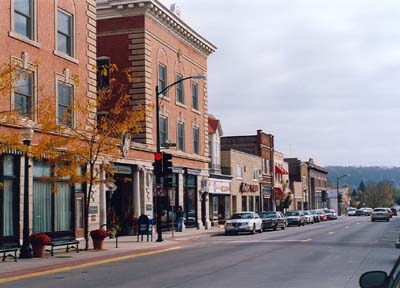
Letter to the Editor: "Federal Historic Tax Credits Retained, State Credits in Jeopardy"
(The following is a Letter to the Editor from Decorah Historic Preservation Commission Chair Mark Muggli):
"The Decorah Historic Preservation Commission is pleased that the recently revised federal tax code retains the Historic Preservation Tax Credits that have been so important across the country in preserving and retrofitting older buildings, but the State tax credits are now under threat.
'Qualified rehabilitation expenses' on major restoration projects are reimbursed at 20 percent by the federal government and an additional 25 percent by the state. This 45 percent reimbursement has often meant the difference between demolition and revitalization.
The $25 billion federal historic tax credits distributed since the program was initiated under President Reagan have brought in $30 billion in additional federal taxes. And that is in addition to local and state tax revenues and the millions of construction and permanent jobs that these credits have generated.
The Federal Historic Tax Credit
After an initial proposal in November to remove all federal historic tax credits, there was a national push that preserved a modified version of the credits in the final tax bill adopted by Congress in December. The State Historic Preservation Office notes the central role of Iowa Senator Chuck Grassley, who was one of four senate co-sponsors of the historic tax credit bill, and Iowa Representative Rod Blum, who was one of five crucial supporters in the House. At a recent Decorah Historic Preservation Commission meeting, commission members noted their appreciation for these successful legislative efforts.
In November, the Decorah City Council unanimously adopted a resolution supporting the historic tax credit that was forwarded to national and state legislative leaders. The resolution made use of an extensive resolution developed by the City of Dubuque, which has been thoroughly revitalized in recent years, in great part because of state and federal historic tax credits.
The revised federal tax credits are restricted to buildings on the National Register of Historic Places. The Decorah Historic Preservation Commission recently led a successful effort to place the Decorah Commercial Historic District on the National Register.
Although the federal tax bill preserves the historic tax credit at 20 percent, it will require that the 20 percent credit be claimed "(apportioned) over a five-year period beginning in the taxable year in which a qualified rehabilitated structure is placed in service." This means that those who qualify for the tax credit would receive 4 percent credit per year for five years rather than 20 percent for one year.
State Historic Tax Credit
The State Historic Preservation Office is largely responsible for processing tax credit claims for both the federal and state programs. Information is available on the web. The state office strongly encourages applicants to consult an accountant, tax attorney, professional tax adviser, or legal counsel. Applicants are welcome to contact us for general guidelines, but local historic preservation commissions do not have any control over the application process."
(Decorah Historic Preservation Commission member Judy van der Linden notes the importance of the federal and state tax credits and encourages Decorah residents to email or call representatives to remind them how important these credits are to the preservation of both small towns and large cities.)
(Decorah Historic Preservation Commission chair Mark Muggli is available to answer questions about historic preservation tax credits by e-mailing mugglimz@luther.edu or calling (612) 720-5795.)
Site designed and maintained by Iroc Web Design Services©.
Your Small Business Web Design Solutions.™


